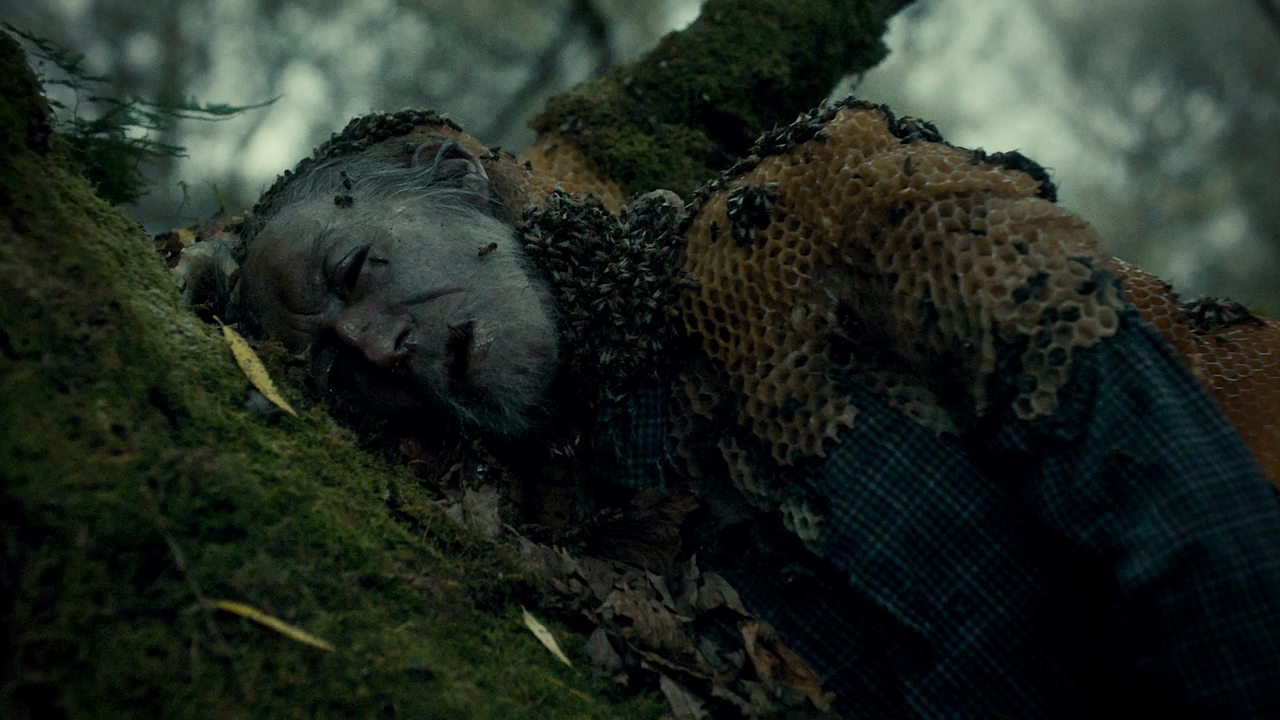The Proverbs of Hell 20/39: Yakimono
 YAKIMONO: A course of flame-grilled meat. There are a number of episodes this would be a sensible title for, none of which are this one.
YAKIMONO: A course of flame-grilled meat. There are a number of episodes this would be a sensible title for, none of which are this one.
MIRIAM LASS: I remember a dream about drowning. Then being awake. And not awake. Being myself, and not myself. I remember I could smell salt air. We were by the sea. For weeks. Months. Longer. Days and evenings blurred, I’d wake up to the smell of fresh flowers and the sting of a needle. I wasn’t afraid. Fear and pain were so far away, on the horizon, but not close. Never close.
Miriam’s description is loosely adapted from a description of Hannibal’s brainwashing of Clarice from Hannibal.
ALANA BLOOM: They found a witness. A survivor. The only victim of the Chesapeake Ripper who lived to tell.
HANNIBAL: Is this witness watching me now?
ALANA BLOOM: Yes.
HANNIBAL: It seems I am the usual suspect.
ALANA BLOOM: I keep having angry, imaginary conversations with Jack Crawford about that. I wish I could tell you why this is happening.
Why are Alana’s conversations imaginary? She showed no hesitation in picking a fight with Jack in season one, nor at the beginning of season two when she started an investigation into his conduct. The charitable explanation – and it’s far from clear such charity is warranted when dealing with apparent inconsistencies in Alana’s characterization – is that she does not bring the matter up with Jack because she is afraid of what Jack will say to defend his position.
WILL GRAHAM: This is very sudden.
DR. CHILTON: The federal prosecutor has dropped all charges. Since you weren’t convicted of killing anyone, the basis for your sentencing to this institution is null and void. The Chesapeake Ripper has set you free.
Endearingly meta, given that we last saw Will early in “Futamono,” have seen none of the procedural wheels involved in this, and the cliffhanger had nothing to do with Will’s release. As a result, Will’s release feels slightly out of nowhere for all that it’s been anticipated for six episodes.
DR. CHILTON: Why didn’t Hannibal just kill you?
WILL GRAHAM: Because he wants to be my friend.
There’s no reason, in the script alone, why this line, which is mostly a restatement of previous sentiments, should be immediately iconic. It’s good, sure, but not in and of itself brilliant. Dancy’s delivery, on the other hand, full of both condescension towards Chilton and incredulity at the absurd thing he has to say in order to understand the basic fact of his drawing breath, is a thing of wonder and ensures that this is up there with “I love your work” and… well, we’ll talk about that next episode.
JACK CRAWFORD: You need a ride?
WILL GRAHAM: I was going to call a cab.
The untroubled ease with which Jack and Will resume their friendship is a nice callback to the tone of the final scene of “Coquilles.”
…JACK CRAWFORD: Miriam thanked me. When we found her. For not giving up on her.

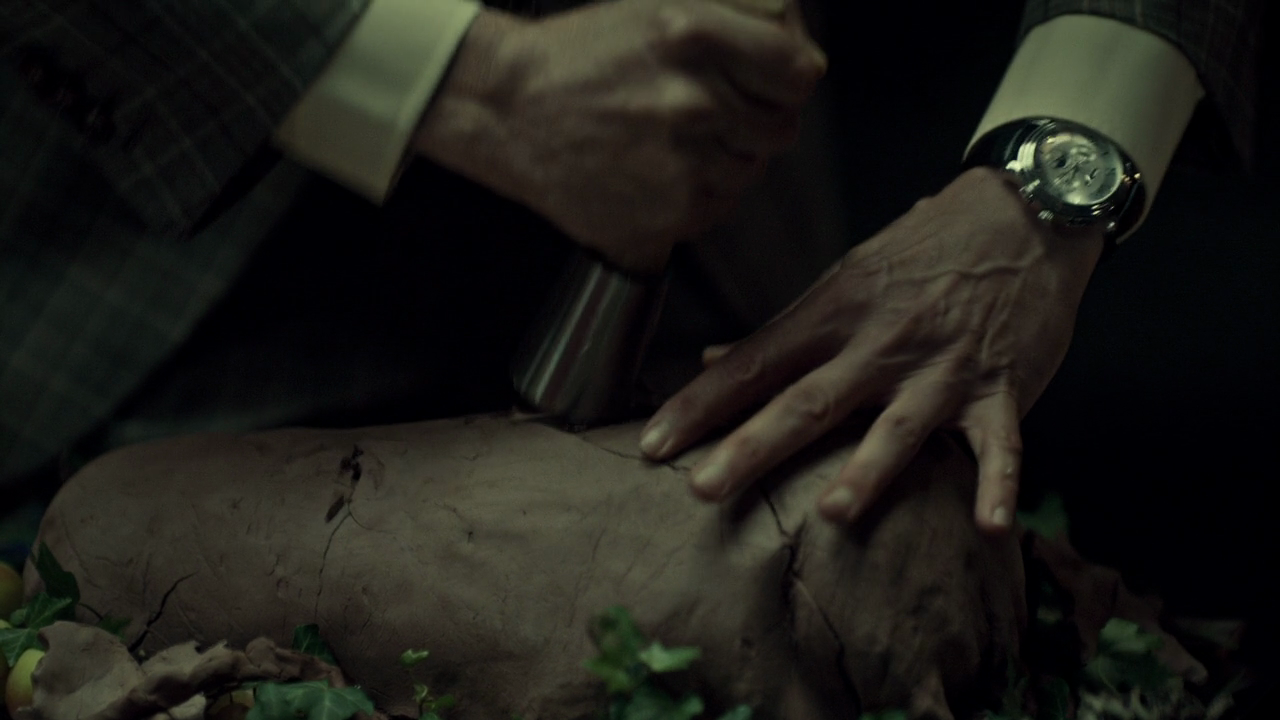 FUTAMONO: A soup dish served in a lidded pot. Most obviously a reference to the final scene, in which Jack discovers Miriam in a covered hole.
FUTAMONO: A soup dish served in a lidded pot. Most obviously a reference to the final scene, in which Jack discovers Miriam in a covered hole.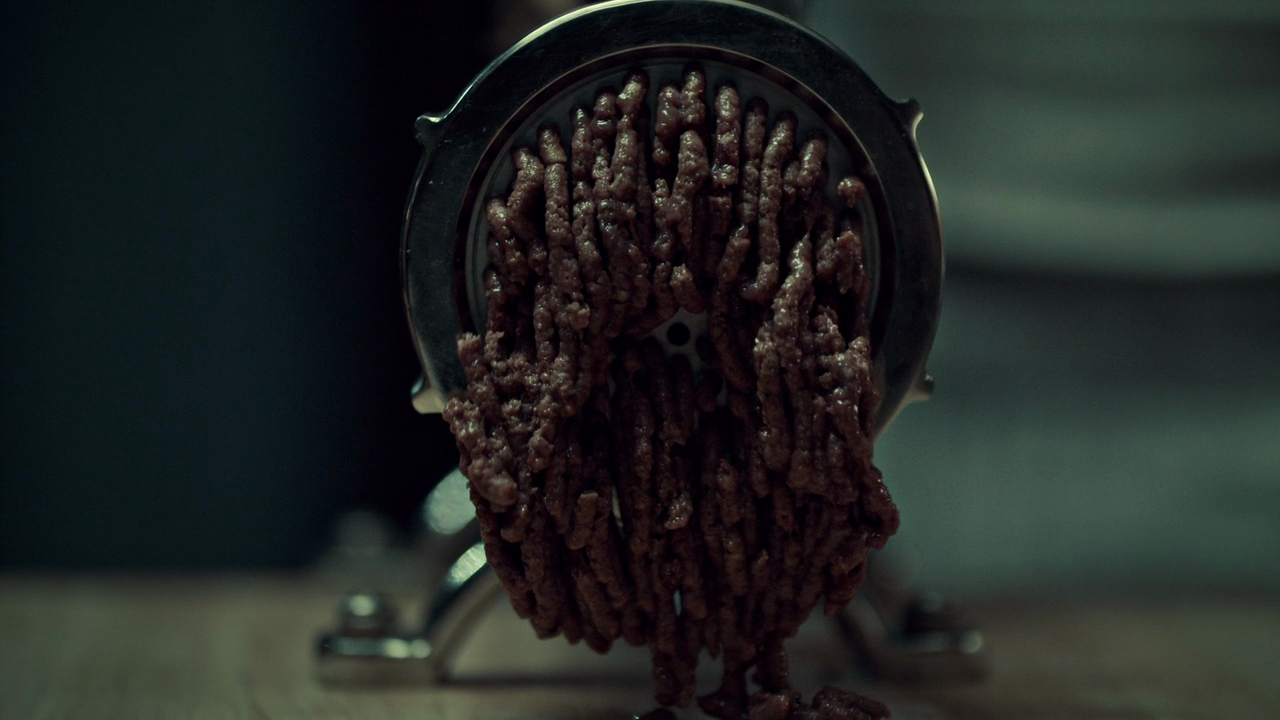 Sorry about the slow posting schedule of late – Jack’s on a brief holiday while he finishes up the Austrian School essay for Neoreaction a Basilisk, and I’m really bad at remembering to queue these on Game of Peaks night. Normal service should resume soon, and your patience is appreciated.
Sorry about the slow posting schedule of late – Jack’s on a brief holiday while he finishes up the Austrian School essay for Neoreaction a Basilisk, and I’m really bad at remembering to queue these on Game of Peaks night. Normal service should resume soon, and your patience is appreciated.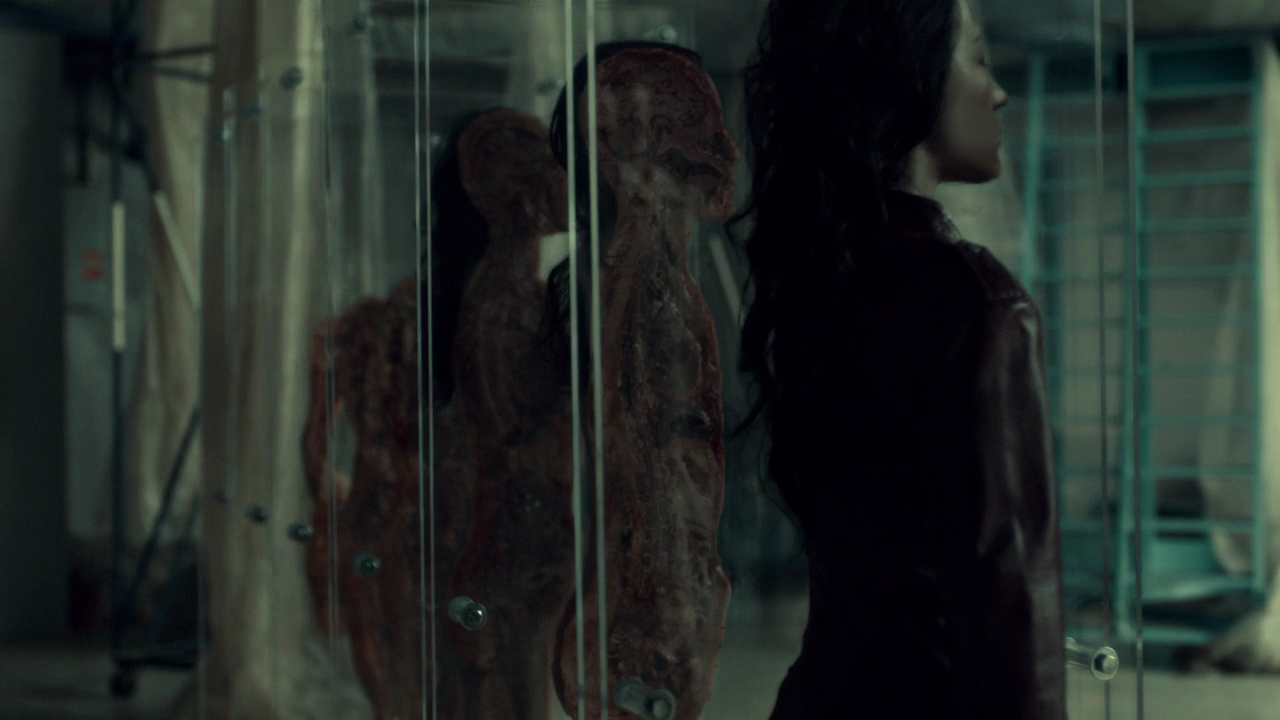
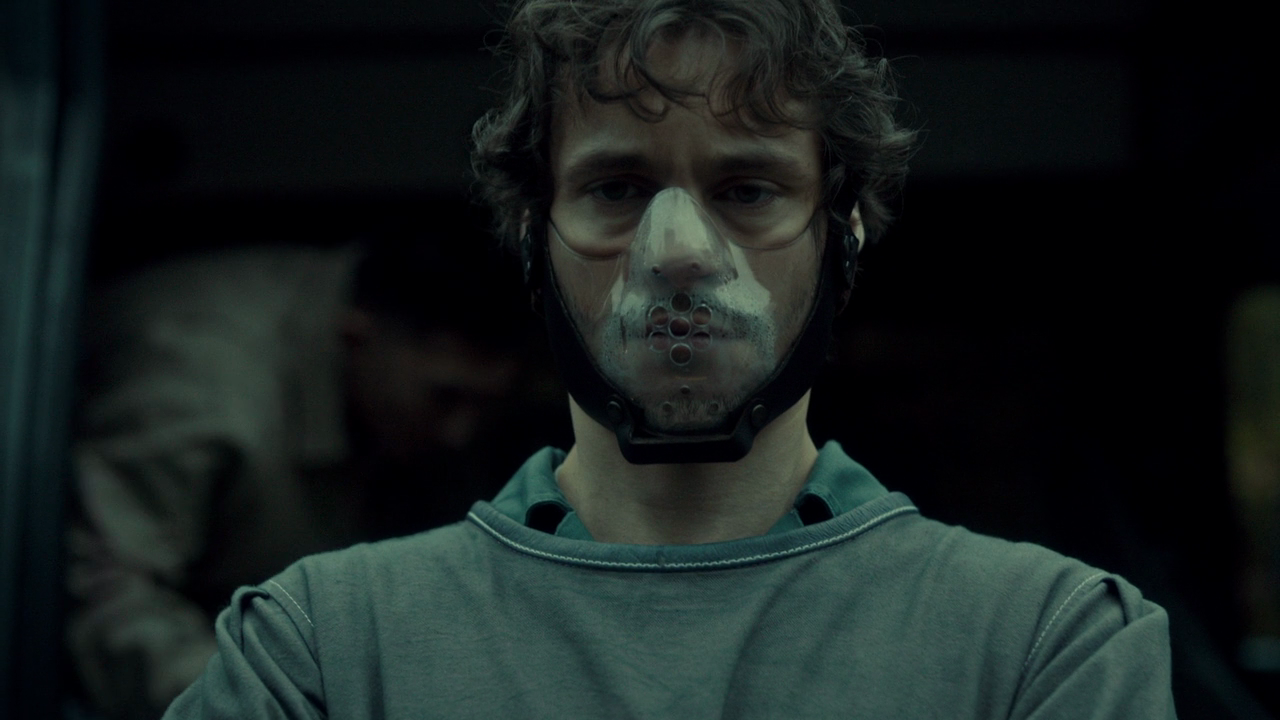
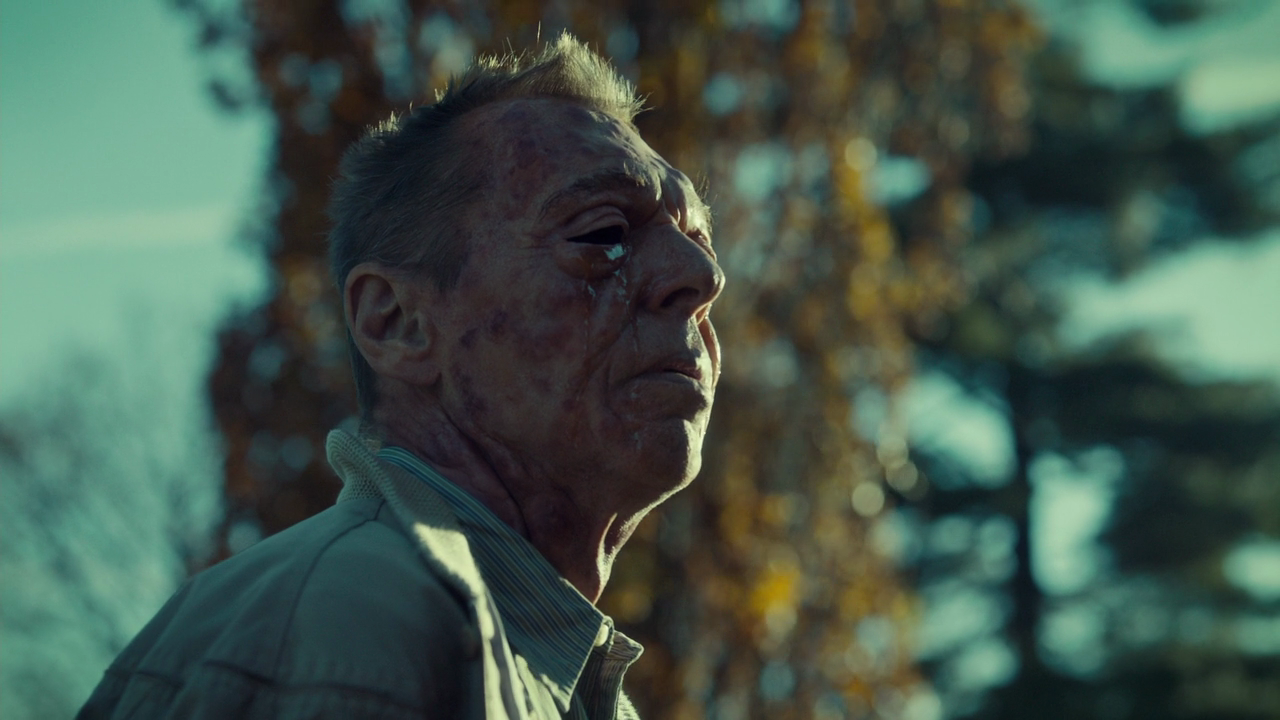 \TAKIAWASE: A mixture of vegetables and a protein in which the ingredients are cooked separately; on the whole a fair description of an episode in which the characters are unusually segregated.
\TAKIAWASE: A mixture of vegetables and a protein in which the ingredients are cooked separately; on the whole a fair description of an episode in which the characters are unusually segregated.